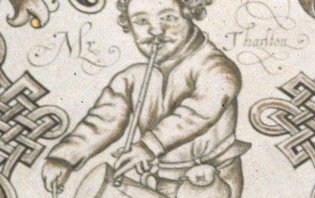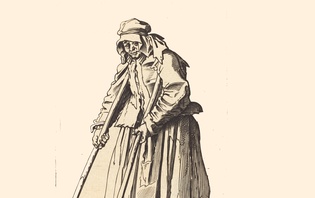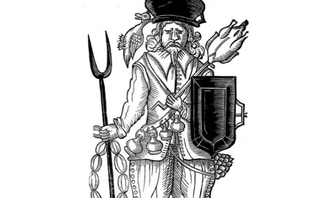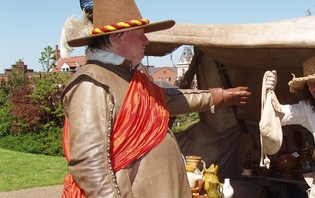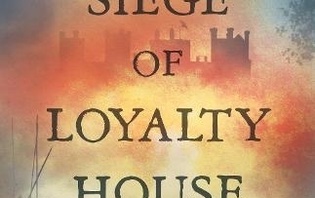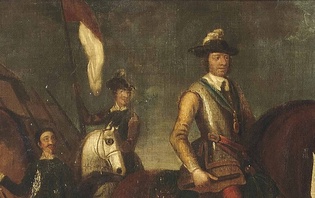Old Wives’ Tales: Long-term Medical Care during the English Civil Wars
One of the main objectives of Civil War Petitions is to gain a better understanding of what kind of medical care was available to wounded soldiers during the Civil Wars. The petitions and certificates reveal the names of medical practitioners that have hitherto remained obscure, as well as provide an insight into the types and quality of the procedures they performed. However, as Ismini Pells explains, medical care during the Civil Wars was not just a matter for professional practitioners…
In January 1688, Robert Ashorst of Marsh Baldon submitted a petition to the Oxfordshire Quarter Sessions together with his wife. Although Robert failed to name his wife, their petition is unusual as an example of a petition for military relief in that it was submitted equally by husband and wife. Robert noted that he was ‘above four score [80] years old & his wife above three score & ten [70]’ and that they were ‘both very lame & helpless’. The couple had previously attempted to secure some parish relief on the basis of Robert’s military service, though the inhabitants refused to accept his story. Robert claimed that he had fought in all three kingdoms and could produce the witnesses to prove it. He had allegedly been impressed for service in the Bishops’ Wars against Scotland under Sir Jacob Astley, and afterwards volunteered for service in putting down the rebellion in Ireland, before going on to fight for the royalist cause in the Civil Wars in England. Whilst in the king’s service he ‘receiv’d so many shots & bruises as together with his old age have render’d him not able to do any thing’.
Although Ashorst’s petition was unusual in being submitted jointly with his wife, it draws attention to the all-too common problems which must have been faced by many military wives during the Civil Wars. As the medical historian Roy Porter was at pains to stress, ‘a great deal of healing in the past (as, of course, in the present) has involved professional practitioners only marginally, or not at all, and has been primarily a tale of medical self-help, or community care’.[1] Indeed, very few of the petitions collected by the Civil War Petitions project so far make any reference to treatment by medical practitioners. Moreover, the vast majority of these cases emanate from soldiers not yet or only recently disbanded. This suggests that although many of the veterans might have received some form of treatment from regimental medical staff in the immediate aftermath of their wounding, the responsibility for their long-term care largely rested with their family.
We know from the petitions of widows whose husbands had survived the initial impact of their wounding or disease that the responsibility for longer-term care for a soldier often rested with his family, typically his wife. For example, Margaret Beavis told the Essex Quarter Sessions in 1653 that her husband John, a soldier in the Commonwealth’s service, had contracted some sort of illness whilst fighting under Captain Burrell and had eventually died ‘after hee hath long lyen sick at greate charges insoe much your poore petitioner is much impoverished thereby’. In Leicester, Katherine Palmer informed the borough corporation that during his imprisonment following the sack of Leicester by the king’s forces in 1645, her husband Abraham (who had participated in the defence of the town) ‘tooke the cause of a disease which within lesse then a yeare did neare him to death by a lingering sicknesse did spend all that your petitioner could anie waies procure’.
Of course, sometimes wives sought professional medical help in caring for their husbands. Elizabeth Newum told the Nottinghamshire County Committee that whilst caring for her husband Nathaniel before his death, she had racked up fees of more than £4 with the surgeon and apothecary. The practitioners were now hounding her for the money, which she had no idea how to pay ‘unless I bee forct to sell up all that I have and soe I and my poor infant shall bee forced to beg’. However, wives will have taken on much of the day-to-day care of wounded veterans themselves. In the seventeenth century, what was it like to look after someone who had lost a limb or suffered from limited mobility, was blind, suffered from disease or was in pain? Few petitioners describe their day-to-day care regime, but we can assume that wounded veterans would have required assistance in performing their daily functions. One rather harrowing account from the West Riding of Yorkshire sheds light on the daily realities of caring for veterans who suffered from potential psychological problems as a result of the Civil Wars. A petition of Elizabeth, her surname illegible but probably the wife of Edward Bradley of Horbury, seems to suggest that her husband was troubled that ‘he should be soe sleighted for his great losses and imprisonments’. Elizabeth described how the family dared not venture abroad ‘but is forst to have one to look after him’, as her husband was prone to putting himself in danger whilst wandering at large. Elizabeth, who was loathe to admit it publicly, could not look after her husband because, in her word, ‘I have beene lame a {missing word} while myselfe and had my breast cut of w[hi]ch hath disinable me much to doe that {missing word}formerly I had done for him’.
As Elizabeth’s petition demonstrates, when wives were unable to care for their husbands themselves, the money required for paid help could put strains on limited family finances. Nevertheless, using a family member as a carer also had an impact on the household income by restricting the time available to the carer for paid employment. A few veterans, like Ashorst, explained how their wife’s own lack of physical health prevented them from taking on work to compensate for his inability to provide for his family. Interestingly, however, not one petition from a wounded soldier collected so far mentions the impact that caring for them had on their wife’s ability to carry out paid work. This resonates with Alexandra Shepard’s work on witnesses in church court cases, where she discovered that male witnesses consistently ignored or downplayed the contribution made by their wives towards their household income.[2] Thus, without the insight provided by the petitions from war widows or from women like Elizabeth, it would be far too easy to overlook the daily responsibilities performed by wives in caring for wounded veterans. As more work emerges on the capabilities and innovations of professional practitioners during the Civil Wars, we must be careful not to lose sight of the equally important – if no doubt at times mundane and laborious – contribution made by these women to medical care in the Civil Wars.
[1] Roy Porter, ‘The Patient’s View: Doing Medical History From Below’, Theory and Society, 14:2 (1985), p. 175.
[2] A. Shepard, Accounting for Oneself: Worth, Status, and the Social Order in Early Modern England (Oxford: Oxford University Press, 2015), pp. 226-30.

